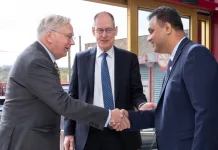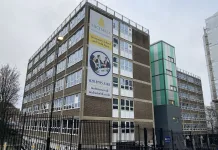
The representatives of Councils for Mosques in northern towns and cities met in Manchester at the Central Mosque on the evening of 7th January 2016, to consider a joint response to the government’s measures to regulate out-of-school education settings.
This meeting was a culmination of meetings and discussions started by Bradford Council for Mosques for the publication of Out of School Education Settings: ‘call for evidence’ on 26th November 2015.
The fact that umbrella bodies representing around three hundred Mosques and Islamic supplementary schools have joined ranks shows the level of anxiety across all Islamic denominations regarding the Government’s proposed regulations.
The particular concerns expressed were about the manner in which the government is steamrolling these measures through without any meaningful consultation with the key stakeholders.
It was strongly felt that the regulations wrongly and unfairly focus on the Islamic community faith education sector.
The fact that the regulatory measures are located in the government’s already failed ‘toxic’ PREVENT programme was the major worry.
The belief in the governmental circles that the Mosques and Madaaris are engaged in nurturing extremism and anti-British sentiments was refuted as not being evidence based.
The focus on Mosques and Madaaris was felt to be unfair and disproportionate.
The need for Mosques and Madaaris to improve in areas of safeguarding and health and safety is acknowledged across all Islamic denominations.
It was felt that Mosques and Madaaris needed to ‘up their game’ for education standards and delivery.
This, however, is best achieved by local stakeholders working collaboratively to achieve these desired outcomes.
There are already adequate legislations and local compliance mechanisms in place.
A strong case for strengthening these frameworks should be put forward. The government is being rather heavy handed by not recognising the strengths of local partnership.
The need to work with other faith communities and providers was greatly emphasised.














